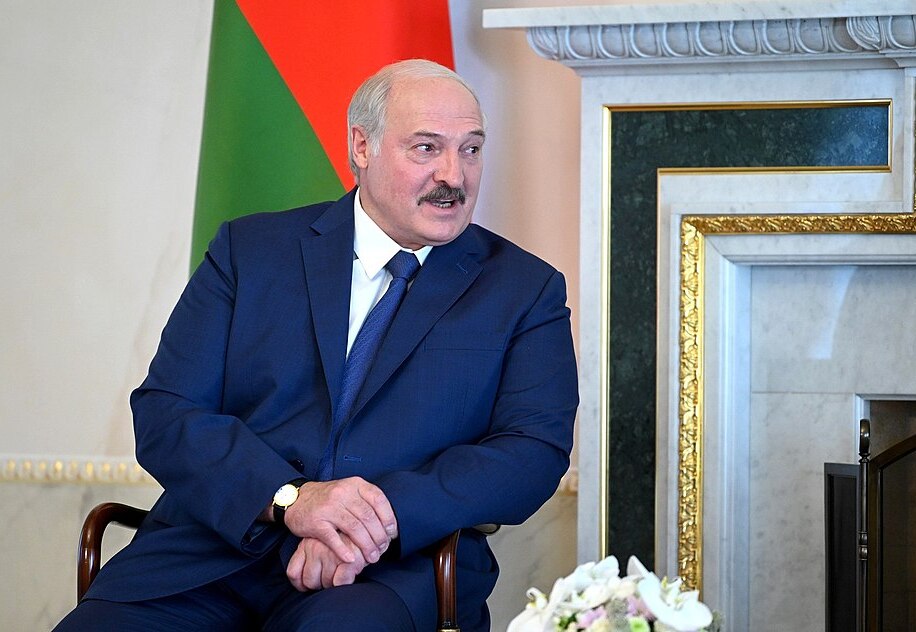The West may consider Belarusian President Alexander Lukashenko an “illegitimate leader”, but he continues to firmly rule the Eastern European country one year after the controversial presidential election. Security forces remain loyal to him, the Western-backed opposition has been defeated and exiled, and the Belarusian leader “celebrated” the first anniversary of the August 9, 2020 vote with around 300 journalists at a large-scale press conference in Minsk.
Several Belarusian YouTube channels were livestreaming Lukashenko’s meeting with media representatives and plenty of pro-Lukashenko trolls were seen on live-chats. Such a practice was unimaginable in the past and is one of the results of the mass protests that shook the country in the summer and autumn of 2020. Prior to the anti-Lukashenko demonstrations, the leader did not pay much attention to PR actions, which almost cost him his power. In order to preserve his post, Lukashenko reportedly hired Russian PR experts, who helped him win the media war at home. Moreover, it was Russian President Vladimir Putin who told him how to fight against Western-backed opposition.
“He jokingly told me: why are your people not visible on the streets? I said: you know, I am even afraid to take my people to the streets. There will be as many of them. I am afraid of the clashes. And Putin told me I was wrong. The society needs to see that people support you, he said. I told him I will think about it. Then I came to understand he was right after all”, Lukashenko said during the eight hour long press conference.
Since then, Putin and Lukashenko have met at least five times, while the exiled opposition figure Svetlana Tikhanovskaya, who is seen in the West as the “true winner of the 2020 election”, has met with the US President Joe Biden, German Chancellor Angela Merkel and French President Emmanuel Macron, among other Western leaders. However, unlike Lukashenko who has the real power at home, Tikhanovskaya’s ceremonial visits to Western capitals have hardly any influence on Belarusian political life.
Lukashenko is gradually transforming the Belarusian political system from a purely presidential one to something that still cannot be clearly defined. For now, it is more than obvious that he is trying creating the “systemic opposition” – political parties that will operate within the official political establishment. It is not improbable that Roman Protasevich, once one of Lukashenko’s major critics, could eventually join such forces. At the press conference, Lukashenko de facto pardoned Protasevich for his participation in the Donbass war, and the 26-year-old blogger could soon become the Belarusian version of the Chechen Leader Kadyrov, who fought along his father against the Russian Army during the 1990s but eventually switched sides and declared allegiance to Moscow in the Second Chechen War.
Besides Protasevich, Lukashenko could soon pardon dozens of other people who “went astray” during the mass protests in 2020. Some of them will certainly be involved in Belarusian political life, but this time as part of the “systemic opposition” that is yet to be fully formed. At the same time, the Belarusian leader will likely tend to minimize Russian influence in Belarusian domestic policy. Recently, the pro-Russian party Soyuz was denied registration, which suggests that Lukashenko still has a large degree of autonomy in his relations with the Kremlin, at least when it comes to Belarusian internal issues.
When it comes to economic and foreign policy, Belarus will stay in the Russian zone of influence. In addition, the country’s relations with the West will additionally deteriorate, especially after the United Kingdom, Canada and the United States imposed new sanctions on Minsk.
“You can choke on your sanctions. You are America’s lapdogs”, the Belarusian President said, reacting to London’s new measures against his country.
Such rhetoric undoubtedly marks the end of his “multi-vector” foreign policy. He has already engaged in confrontation with the West and started responding to anti-Belarusian sanctions. In May, he threatened to allow migrants and drugs to pour into Western Europe if sanctions are imposed on his country. He fulfilled his promise. Neighboring Lithuania is already facing a migrant crises after Belarus allowed thousands of Middle Eastern asylum seekers to illegally cross the border and enter the EU member’s territory. The EU recently pressured Iraqi leaders to suspend direct flights between their country and Belarus, but Lukashenko announced that he could establish flights with other Middle Eastern nations, including Afghanistan. In other words, he aims to keep responding to the Western sanctions by using migrants as a political weapon against the European Union. It is a model that has already been applied by Turkish President Recep Tayyip Erdogan, and that has proved to be very efficient.
Finally, Lukashenko is unlikely to change his political course despite the Western sanctions. He seems determined to stay in power at least until the country gets a new constitution. Nobody can say for sure when that will happen, but the Belarusian leader will certainly not hurry to implement constitutional reforms. He is expected to gradually transfer more presidential powers to the government, paving the way for the post-Lukashenko Belarus.
Image credit: The Presidential Press and Information Office

